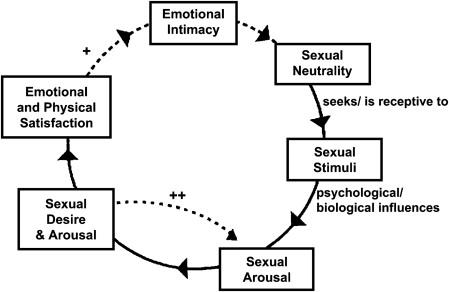In the intricate tapestry of human health, hormones play a pivotal role, acting as unseen architects of our physical and emotional well-being. Among these biochemical messengers, testosterone stands out, not merely as a marker of virility, but as a vital element influencing various aspects of life, including sexual function. As societal conversations around sexual health evolve, the interest in testosterone therapy has surged, drawing attention to its potential benefits and controversies. This article delves into the multifaceted relationship between testosterone and sexual function, exploring who may benefit from therapy, the science behind hormonal balance, and the implications of treatment on quality of life. Join us as we navigate this complex landscape, shedding light on the potential of testosterone therapy in the pursuit of enhanced sexual vitality.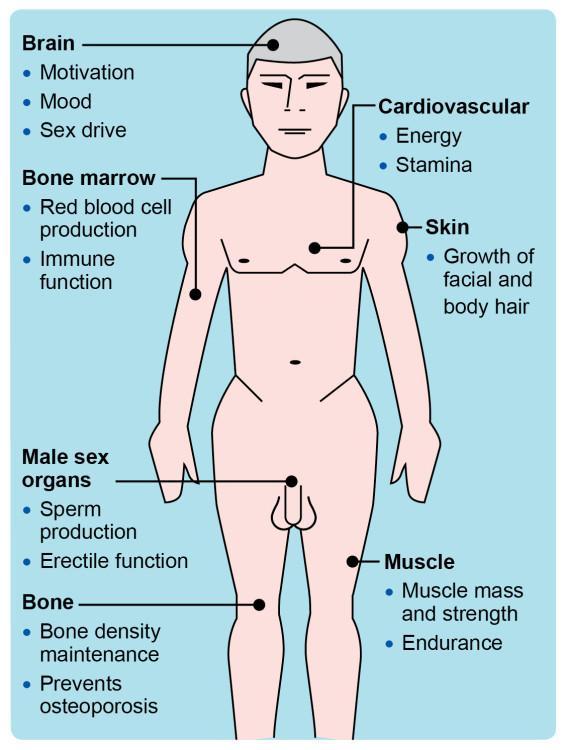
Understanding the Role of Testosterone in Sexual Health
Testosterone plays a crucial role in male sexual health, influencing not just libido but overall sexual function. This hormone is vital for the development of male reproductive tissues and contributes to the production of sperm. As testosterone levels fluctuate with age or due to various health conditions, men may experience a decline in sexual desire and performance. Common symptoms of low testosterone can include decreased motivation, reduced spontaneous erections, and difficulties in achieving orgasm. Addressing these issues through therapy can lead to significant improvements in quality of life and intimate relationships.
In terms of treatment, testosterone therapy often aims to restore levels to their optimal range, which may alleviate symptoms associated with low sexual function. There are several methods of administration, which include:
- Injections: Administered directly into the muscle, providing a quick boost in testosterone levels.
- Patches: Worn on the skin for a steady release of testosterone throughout the day.
- Gels: Applied to the skin, allowing for absorption through the dermal layers.
- Pellets: Implanted under the skin for slow, continuous delivery over several months.
Each of these methods has its own benefits and drawbacks, and the choice largely depends on individual preferences and medical advice. Regular monitoring and consultation with a healthcare provider are essential to ensure the therapy is effective and to mitigate any potential side effects.
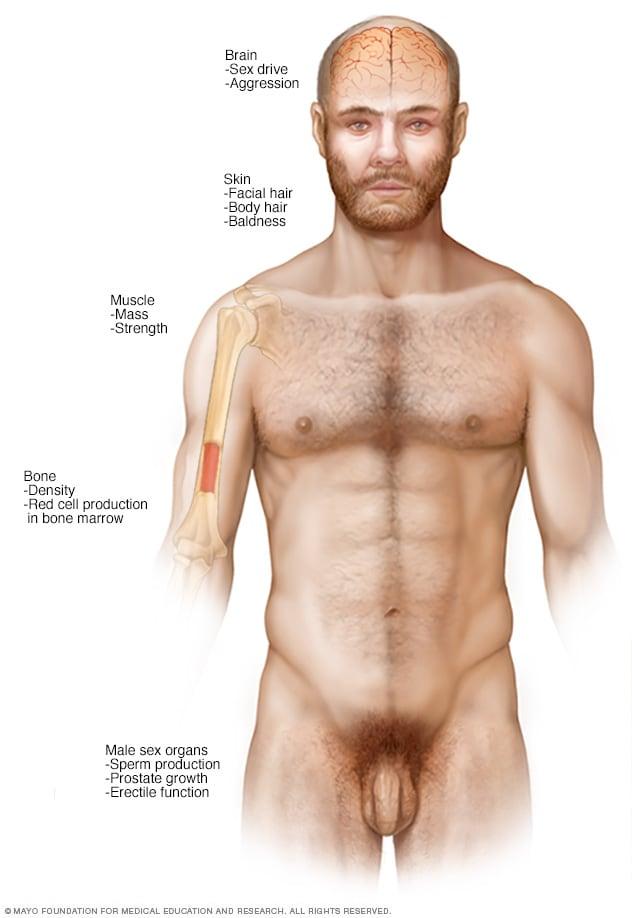
Recognizing the Signs of Low Testosterone Levels
Low testosterone levels can manifest in various ways, and recognizing these signs is crucial for seeking appropriate treatment. Common symptoms include decreased libido, characterized by a noticeable drop in sexual desire, and erectile dysfunction, which may make achieving or maintaining an erection difficult. Additionally, individuals may experience an increase in fatigue, leading to a lack of energy and motivation, while mood swings can become more prominent, resulting in irritability or depression.
Behavioral changes may also indicate imbalances in testosterone levels. Look for signs like difficulty concentrating, often felt as a foggy mindset, or increased body fat, especially around the abdomen, which often accompanies muscle loss. Other signs could include disrupted sleep patterns, marked by insomnia or restless nights, and reduced physical performance, where activities that were once easy become challenging. If experiencing any of these symptoms, consulting a healthcare provider is advisable for evaluation and potential testing.
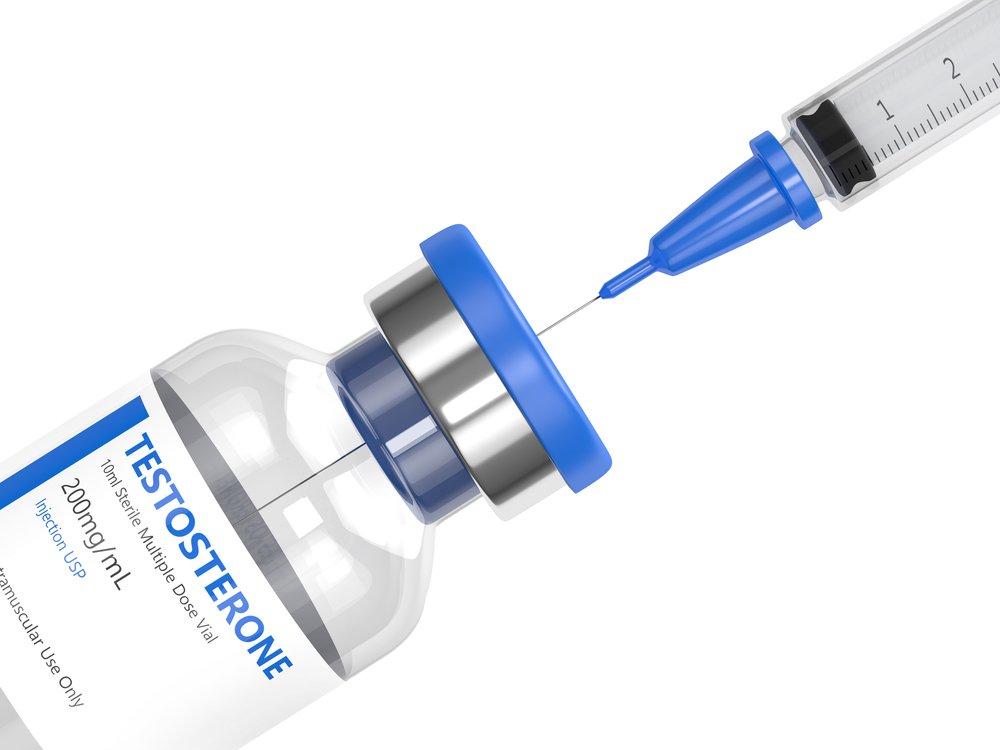
Exploring the Benefits and Risks of Testosterone Therapy
Testosterone therapy has gained attention as a potential remedy for those experiencing sexual dysfunction, particularly in men. The benefits often associated with this treatment include improved libido, enhanced sexual performance, and increased energy levels. These changes can significantly alter one’s quality of life, leading to stronger intimate relationships and boosted self-esteem. A few of the main advantages of testosterone therapy in the context of sexual function are:
- Increased Libido: Many individuals report heightened sexual desire.
- Improved Erectile Function: Testosterone plays a crucial role in maintaining erectile capabilities.
- Enhanced Mood and Confidence: Higher testosterone levels can correlate with reduced anxiety and improved overall mood.
However, the therapy is not without its risks. Potential side effects can range from mild to severe, necessitating thorough medical consultations before treatment initiation. Some of the notable risks include the potential for cardiovascular issues, sleep apnea, and possibly an increase in prostate size, which demands careful monitoring. Additionally, misuse or overuse of testosterone can lead to negative outcomes such as:
- Hormonal Imbalance: Unregulated therapy may disrupt the body’s natural hormone levels.
- Skin Reactions: Injections or gels might cause irritation or rashes.
- Infertility Concerns: High testosterone levels can affect sperm production.
| Benefit | Potential Risk |
|---|---|
| Increased libido | Hormonal imbalance |
| Improved erectile function | Skin reactions |
| Enhanced mood | Infertility concerns |
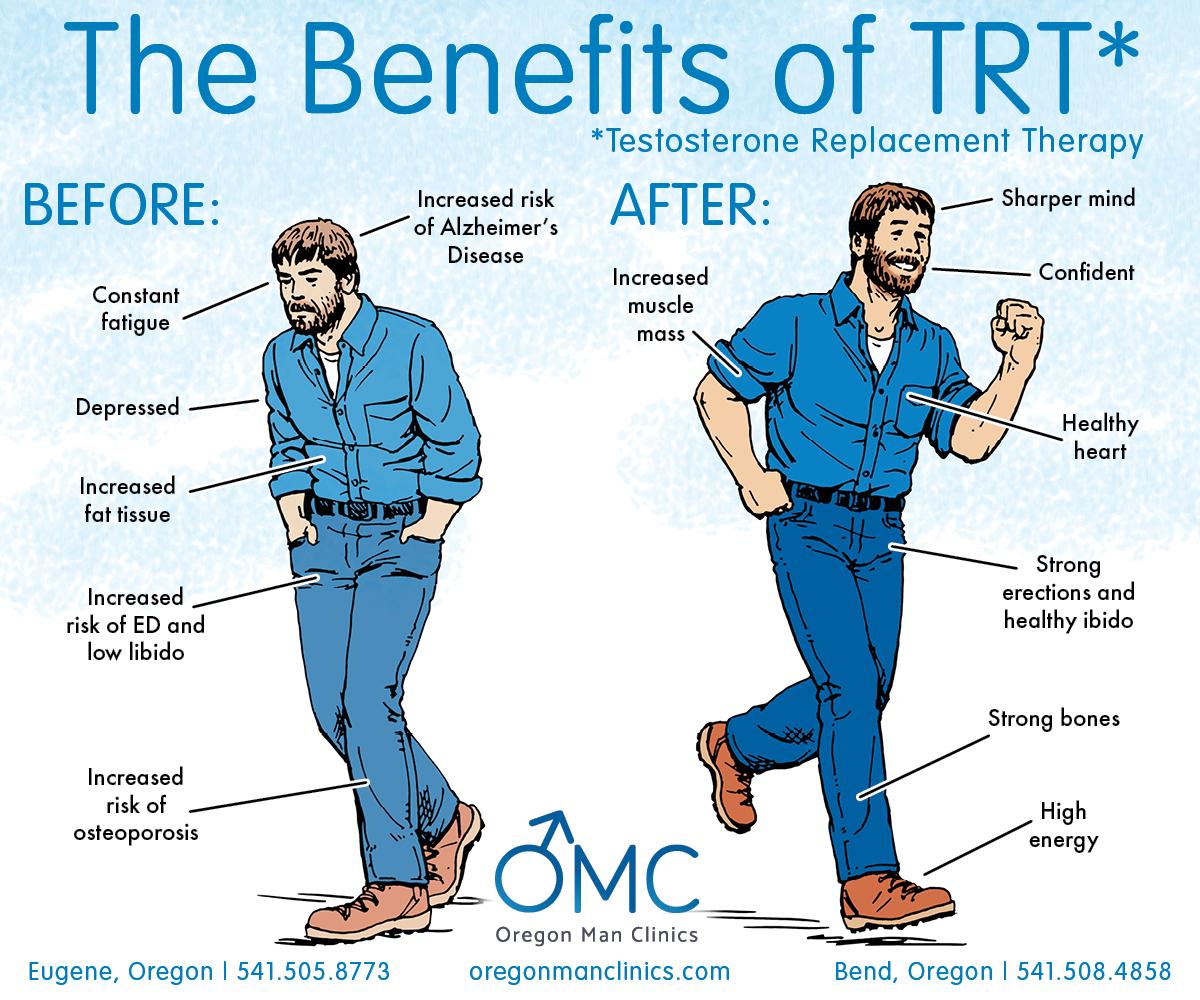
Navigating Different Forms of Testosterone Treatment
When considering testosterone therapy for enhancing sexual function, it is essential to understand the various forms available. Each type offers distinct advantages and can be tailored to individual lifestyle needs. The most common forms include:
- Injections: Administered intramuscularly or subcutaneously, typically every one to two weeks.
- Patches: Transdermal patches that release testosterone steadily through the skin over 24 hours.
- Gels: Topical applications allowing for daily adjustments in testosterone levels.
- Pellets: Small, grain-sized pellets implanted under the skin releasing testosterone over several months.
Choosing the right form of therapy often depends on personal preferences, efficacy, and potential side effects. For instance, injections may offer a higher initial boost in testosterone levels, while gels provide more controllable dosing and minimize fluctuations. Below is a comparison table summarizing key characteristics:
| Form | Administration | Frequency | Pros | Cons |
|---|---|---|---|---|
| Injections | Intramuscular or subcutaneous | Every 1-2 weeks | Quick effects, high absorption | Pain at injection site, hormonal spikes |
| Patches | Applied to the skin | Daily | Steady release | Skin irritation possible |
| Gels | Topical application | Daily | Adjustable dosing | Risk of transfer to others |
| Pellets | Implanted under the skin | Every few months | Consistent levels over time | Minor surgical procedure required |
Integrating Lifestyle Changes to Enhance Sexual Function
To optimize sexual function, integrating lifestyle changes can be as significant as testosterone therapy itself. Engaging in regular physical activity not only boosts testosterone levels but also enhances mood and energy levels, leading to a more fulfilling sexual experience. Here are some lifestyle modifications to consider:
- Balanced Diet: Incorporate foods rich in zinc and omega-3 fatty acids, which are essential for hormone production and overall health.
- Stress Management: Implement relaxation techniques such as meditation or yoga to reduce cortisol levels, which can negatively impact testosterone and sexual performance.
- Adequate Sleep: Aim for 7-9 hours of quality sleep per night, as sleep deprivation is linked to hormonal imbalances and diminished libido.
- Limiting Alcohol and Tobacco: Reducing consumption can improve blood flow and hormone levels, critical for healthy sexual function.
Additionally, understanding the interconnection between emotional well-being and sexual health can further enhance the effects of testosterone therapy. Many psychological factors can affect sexual desire and performance. A supportive environment, open communication with partners, and addressing mental health concerns are important aspects. Consider the following table of psychological factors and their solutions:
| Psychological Factor | Possible Solution |
|---|---|
| Stress | Mindfulness meditation |
| Anxiety | Cognitive Behavioral Therapy |
| Low self-esteem | Positive affirmations and support groups |
| Relationship issues | Couples therapy and open dialogue |
Consultation and Testing: What to Expect from Healthcare Providers
When considering testosterone therapy, understanding the consultation and testing process is vital. Healthcare providers typically begin with a comprehensive assessment that includes a detailed review of medical history and an evaluation of current symptoms related to sexual function. During this initial consultation, you can expect a respectful and confidential environment where your concerns can be discussed openly. The provider may ask about specific issues, such as changes in libido, erectile function, and overall energy levels. These discussions help identify if testosterone deficiency is a potential factor.
After the consultation, testing is the next critical step. This often involves blood tests to measure testosterone levels and other hormones that can influence sexual functioning. You may also undergo additional tests to rule out other conditions. The results of these tests will guide the healthcare provider in making a personalized treatment plan tailored to your needs. It’s also essential to discuss any potential side effects and the long-term implications of therapy during this phase. Common considerations might include:
- Effects on mood: Monitoring for any mood swings or changes.
- Fertility impact: Understanding how testosterone therapy may affect fertility.
- Heart health: Assessing cardiovascular risks associated with therapy.
| Test | Purpose |
|---|---|
| Total Testosterone | Measures the overall testosterone levels in the blood. |
| Free Testosterone | Determines the fraction of testosterone available for use by the body. |
| SHBG | Assesses sex hormone-binding globulin levels affecting testosterone. |
Empowering Conversations: Communicating with Partners About Therapy
Discussing therapy, particularly testosterone therapy, with a partner can lead to deeper understanding and support within the relationship. It’s essential to create a safe space where both partners can express their thoughts and feelings. Start by sharing your reasons for considering testosterone therapy and the goals you hope to achieve. Use active listening techniques to ensure your partner feels heard and respected. Some helpful points to consider include:
- The benefits of therapy - Discuss how increased testosterone levels can improve sexual function, energy, and mood.
- Concerns and misconceptions – Address any worries your partner may have about side effects or the implications of therapy.
- Setting realistic expectations – Talk about potential adjustments in intimacy and the importance of patience during the process.
It’s also beneficial to keep the conversation ongoing as you journey through therapy together. Regular check-ins can help both partners monitor progress and adapt to any changes. Consider creating a simple table to track emotional and physical changes over time, which can foster transparency and connection:
| Week | Emotional Well-being | Physical Changes |
|---|---|---|
| 1 | Increased motivation | Higher energy levels |
| 4 | Improved mood | Enhanced libido |
| 8 | Better self-esteem | Stronger muscle tone |
Maintaining an open dialogue about therapy not only strengthens bonds but also reinforces the importance of partnership and understanding in navigating health-related journeys together.
Q&A
Q&A: Understanding Testosterone Therapy for Sexual Function
Q1: What is testosterone therapy, and how does it relate to sexual function?
A1: Testosterone therapy involves administering testosterone—whether through injections, patches, or gels—to individuals with low testosterone levels. This treatment targets various aspects of health, primarily focusing on sexual function, energy levels, mood, and muscle mass. For many, increased testosterone can lead to enhanced libido, improved erectile function, and overall sexual satisfaction.
Q2: Who might benefit from testosterone therapy concerning sexual function?
A2: Testosterone therapy is primarily considered for individuals diagnosed with hypogonadism, a condition where the body produces insufficient testosterone. Symptoms may include reduced libido, erectile dysfunction, fatigue, and a decrease in overall quality of life. However, a healthcare provider should evaluate any potential benefits on a case-by-case basis.
Q3: What are the potential benefits of testosterone therapy for sexual function?
A3: Many individuals experience a rekindled interest in sexual activity. Testosterone therapy can help:
- Increase libido and sexual desire.
- Improve erectile function and satisfaction.
- Enhance mood, which can indirectly benefit sexual performance.
- Boost energy levels, making intimacy more appealing.
Q4: Are there any risks or side effects associated with testosterone therapy?
A4: Yes, like any medical treatment, testosterone therapy comes with potential risks. These may include:
- Sleep apnea or worsening of existing sleep apnea.
- Acne and skin reactions.
- Increased risk of blood clots.
- Possible enlargement of the prostate gland or stimulating existing prostate issues.
- Mood swings or aggression, often referred to as “roid rage.”
Q5: How is testosterone therapy administered?
A5: Testosterone can be administered through various methods, including:
- Injections: Typically given every 1-3 weeks.
- Transdermal patches: Applied daily to deliver a steady dose.
- Gels: Applied directly to the skin, absorbed throughout the day.
- Pellets: Implanted under the skin, releasing testosterone over time.
Q6: How does one know if testosterone therapy is necessary?
A6: The decision to start testosterone therapy should follow thorough evaluations, including blood tests to measure testosterone levels. Symptoms, medical history, and overall health will also be considered. A healthcare provider can help determine whether the benefits of therapy outweigh any potential risks.
Q7: Can lifestyle changes also impact sexual function, and how do they compare to testosterone therapy?
A7: Absolutely! Lifestyle changes such as regular physical activity, a balanced diet, adequate sleep, and stress management can significantly improve sexual function. These changes should be considered as complementary to or, in some cases, alternatives to testosterone therapy, especially for those whose symptoms might be related to lifestyle factors rather than low testosterone.
Q8: What should individuals keep in mind when considering testosterone therapy?
A8: It’s essential to have open dialogues with healthcare providers about symptoms, treatment options, and potential risks. Each individual’s situation is unique, so a tailored approach is vital in determining the right course of action.
Q9: Where can someone find more information about testosterone therapy for sexual function?
A9: Trusted medical websites, educational health organizations, and consultation with healthcare practitioners are excellent resources. Furthermore, discussion forums or patient advocacy groups may provide personal insights and shared experiences, facilitating informed decision-making.
Q10: what is the takeaway for individuals considering testosterone therapy for sexual function?
A10: Testosterone therapy can be a valuable option for individuals struggling with sexual function due to low testosterone levels. However, it’s crucial to weigh the benefits against the risks, ensure proper medical supervision, and consider a holistic approach to health that includes lifestyle modifications. Each journey is individual, and informed decisions lead to the best outcomes.
Final Thoughts
the exploration of testosterone therapy for enhancing sexual function opens up a complex and dynamic dialogue about health, intimacy, and personal well-being. While the potential benefits are significant for many individuals experiencing low testosterone levels, it is essential to navigate this path with careful consideration and professional guidance. As science continues to evolve, so too will our understanding of the intricate interplay between hormones and human desire. Whether you’re seeking renewed vigor or simply wish to understand the myths and realities surrounding testosterone therapy, informed decision-making remains key. Ultimately, fostering open conversations about sexual health can empower individuals to make choices that align with their personal needs and aspirations, paving the way for healthier, more fulfilling lives.

